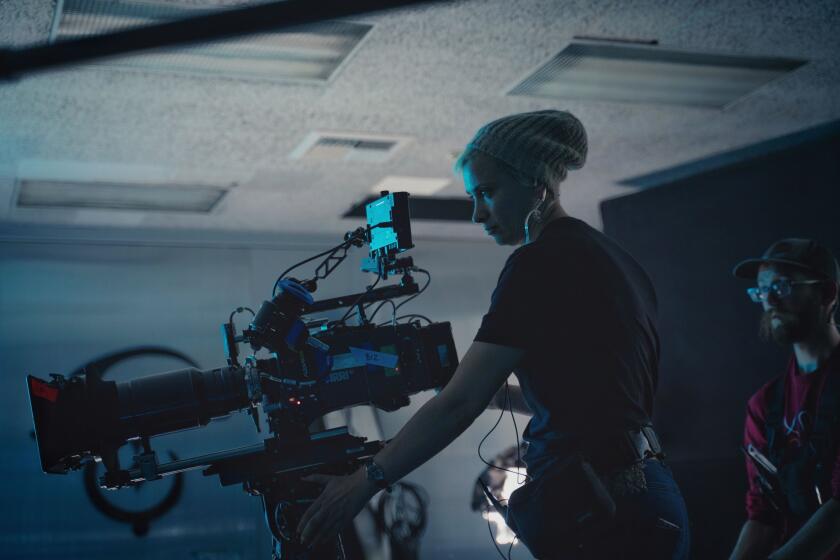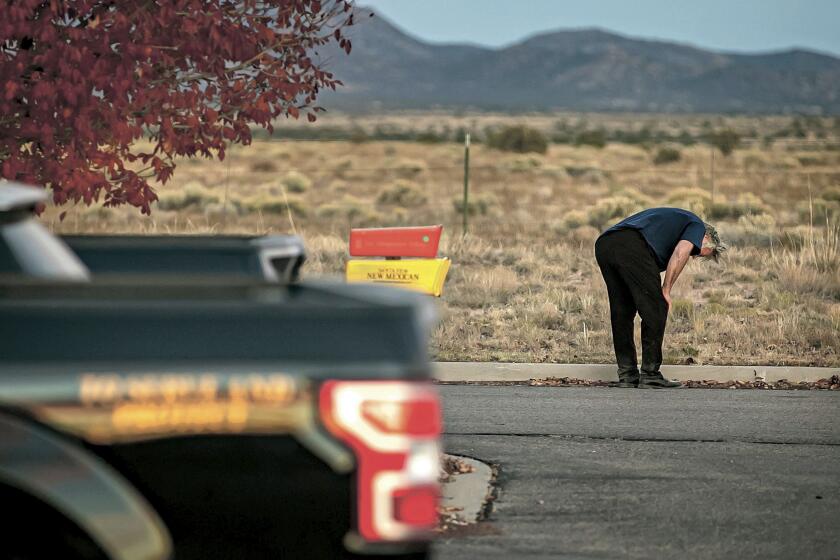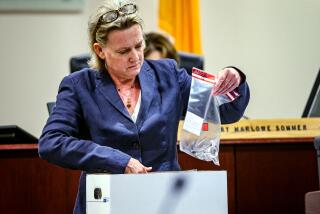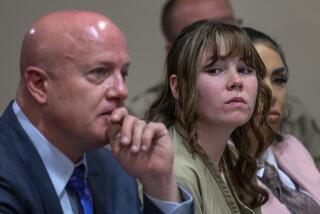In ‘Rust’ shooting case, New Mexico prosecutors look to ‘get justice’ for Halyna Hutchins
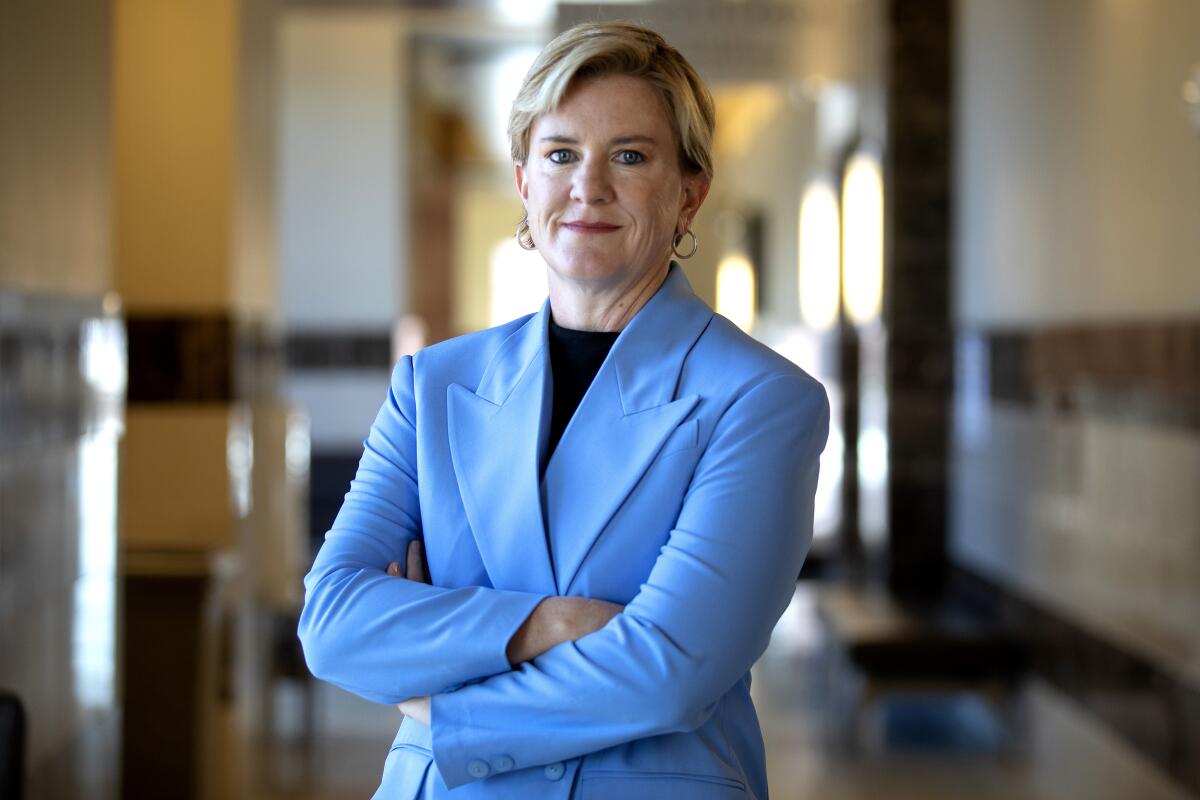
New Mexico prosecutors acknowledged Thursday they struggled over whether to charge actor Alec Baldwin and weapons handler Hannah Gutierrez Reed with involuntary manslaughter, a felony, but said they felt an obligation to the slain cinematographer Halyna Hutchins.
“To be very honest, we wrestled with charging anyone,” New Mexico’s 1st Judicial Dist. Atty. Mary Carmack-Altwies said in an interview with the Los Angeles Times. “This is a very complicated case [and] there were three people that we believe were potentially culpable for firing the weapon.”
Cinematographer Halyna Hutchins was killed on the set of “Rust” in October 2021. A judge dismissed the involuntary manslaughter case against star Alec Baldwin in July 2024.
Those three — Baldwin, Gutierrez Reed and David Halls, the assistant director — all faced felony charges in the death of Hutchins, she said.
But Halls, who was the on-set safety coordinator, cooperated with prosecutors and accepted a plea for a misdemeanor charge — negligent use of a firearm.
Carmack-Altwies said Baldwin and Gutierrez Reed will be formally charged by the end of January. Should the case go to trial, a jury will decide whether jail time is warranted.
Attorneys for Baldwin and Gutierrez Reed said the charges were baseless and that their clients were not guilty of involuntary manslaughter.
Many in Hollywood felt that Baldwin would escape serious charges. They argued that he was the actor on the set, not the weapons expert. Baldwin himself said in several interviews that he was relying on professionals — Gutierrez Reed and Halls — to do their jobs. The film’s director, Joel Souza, was also injured in the Oct. 21, 2021, shooting.
Baldwin’s celebrity didn’t spare him from the manslaughter charges — one which carries a mandatory five-year sentence, should he be convicted.
“We have a belief that everybody should be equally held accountable under the law,” said veteran prosecutor Andrea Reeb, who was tapped last summer as the special prosecutor.
Reeb, a Republican, retired from her role as district attorney and was elected as a representative in New Mexico’s legislature, representing the 64th District, in November. Carmack-Altwies is a Democratic district attorney in Santa Fe.
The following interview with Carmack-Altwies and Reeb has been edited for brevity and clarity.
Baldwin has maintained that he relied on other professionals to do their jobs and check the gun. Why did you charge him?
“He absolutely had a duty to either check the weapon himself or have someone to check in front of him,” Carmack-Altwies said. “We’ve spoken with several actors, A-list and less than A-list, and all have confirmed that when you are handed a gun, you need to look at it and make sure that it’s safe.
“Not only that, but just when anyone is handed a gun you need to make sure that you are not pointing it or pulling the trigger at anyone or anything that you’re not willing to shoot. He didn’t take those basic safety recommendations and procedures and protocols into account. We had to wrestle with the law and what our case law says here in New Mexico ... .”
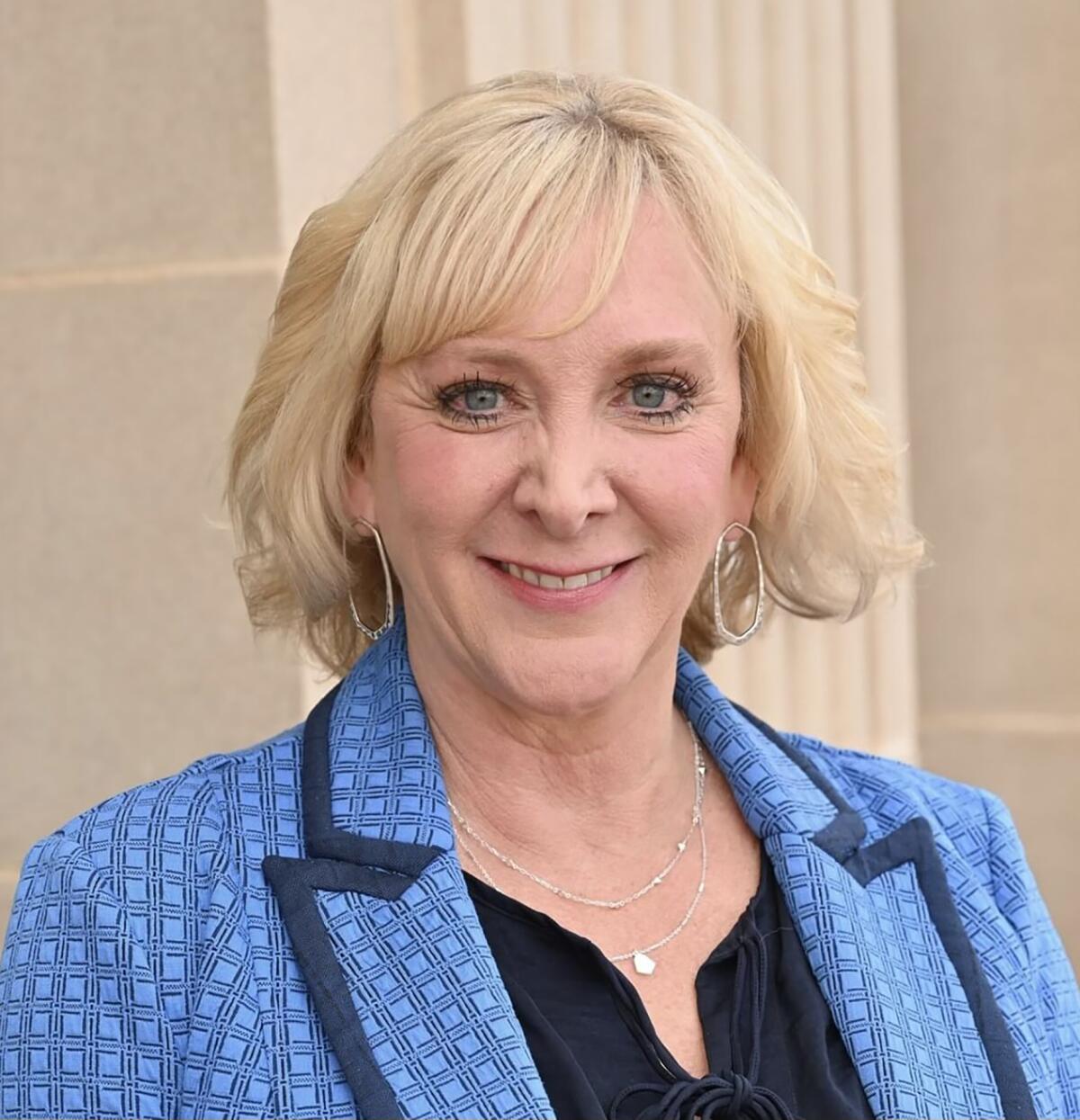
This case involves a Hollywood A-list star. How did that factor into your decisions?
“Whether you’re an A-list actor [or not], our goal here is to treat everybody equally, and to get justice for the victim, Halyna Hutchins, and also to really look at these film sets in New Mexico. Are they safe? And are things being done right? And clearly, they weren’t on this [film],” said Reeb. “This tragedy could have been avoided very easily. But no, as far as being an A-list actor and having notoriety or popularity, he is just another defendant to us under the law.”
The charges expected against Alec Baldwin in the shooting of “Rust” cinematographer Halyna Hutchins demonstrate the challenges of involuntary manslaughter prosecutions.
The assistant director Dave Halls accepted a plea deal. How did that come about?
“Dave Halls approached us and was cooperative with our investigation,” Carmack-Altwies said. “ When he came in we had a very frank and honest discussion. We felt like ... he was still culpable, but he was the least culpable. ... As part of his plea deal, he will be testifying or cooperating with the prosecution.”
There is still the outstanding question of how did the live bullets get on set. Does not knowing the answer weaken your case?
“Everybody seems to want to know where the live rounds came from, and we’ve definitely interviewed everybody trying to answer that question,” Reeb said. “But when it came down to whether it really matters, I mean, there were six live rounds found in various places on this movie set, which is obviously very concerning.”
“But the armorer should have caught those live rounds on set and so our bigger concern is why didn’t Hannah Gutierrez Reed catch these live rounds on set — not so much on how they got on there. That may be a question that never gets answered.”
No one here intended to cause harm. So how do you square that with these charges?
“We’re in no way saying this is an intentional homicide or act,” Reeb said. “We have [in New Mexico] involuntary manslaughter which is a different standard. ... And so that’s the standard we have to get to in order to prove his case.
“Everyone agrees that this was accidental, but it was recklessly accidental,” said Carmack-Altwies. “Somebody should have caught this and they didn’t and that’s where the criminality comes in.”
Interviews with multiple members of the “Rust” crew paint an hour- by-hour picture of a cascade of bad decisions that created a chaotic set on which a lead bullet was put into a prop gun.
This case is so high-profile. How have you managed to deal with the publicity and attention?
“It was a surprise to me when this happened, and it was not something I expected to happen in my first time as district attorney,” Carmack-Altwies said. “But what I really focused on is getting justice for Halyna Hutchins and treating everyone equally under the law. And so I tried to put everything else outside of my vision. That’s not what matters.”
Did politics play a part in your decision?
“I was elected district attorney since 2014. I just retired last year,” Reeb said. “So the DA and I knew each other and she knew my work and we’ve talked about this case prior to me even deciding to run for election. So there’s really no politics in it. I’m still a prosecutor.
“It comes back to what I care about, whether to bring justice to our victims in this case, and also really look at these film sets and make sure that we have adequate safety measures so that this type of thing doesn’t happen.”
More to Read
Inside the business of entertainment
The Wide Shot brings you news, analysis and insights on everything from streaming wars to production — and what it all means for the future.
You may occasionally receive promotional content from the Los Angeles Times.
